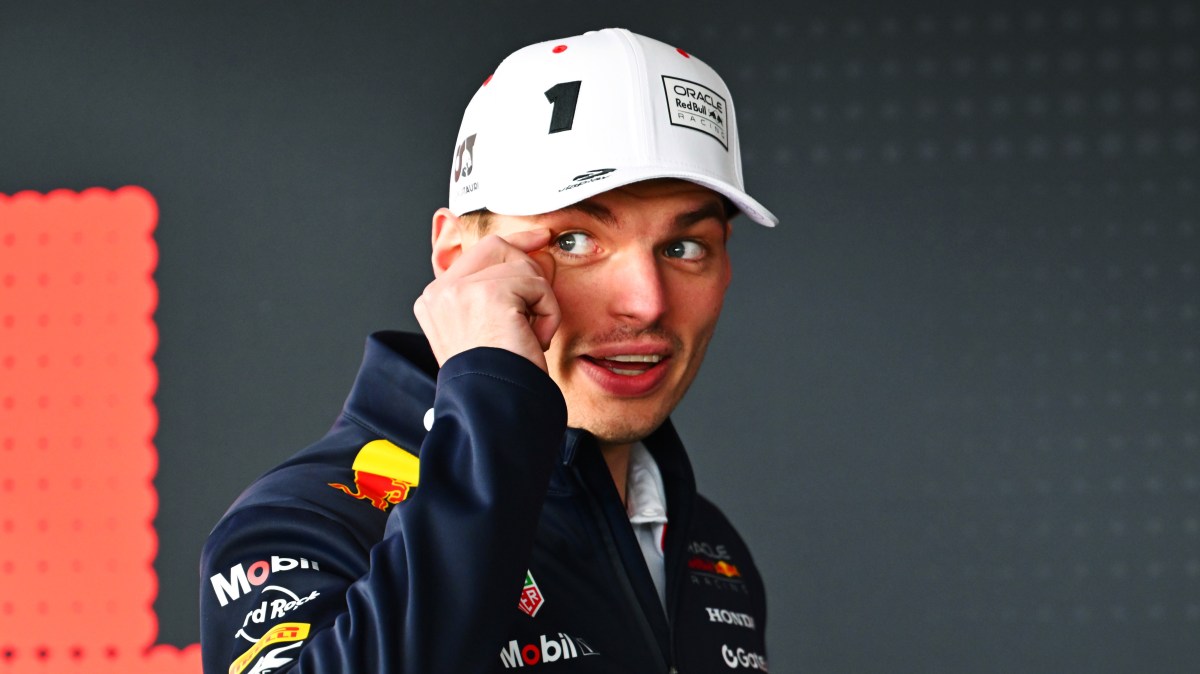A Formula 1 cockpit is a uniquely testing place. Temperatures can reach up to 60C, it is tight and cramped, with your race engineer providing a near-constant stream of information and competitors and circuit walls only centimetres away.
In Barcelona, Max Verstappen’s temper got the better of him in the closing laps, a series of bad luck and strategy choices shortening his fuse before a misjudged collision with George Russell.
A flashpoint like that is relatively rare in the sport — most other crashes involve genuine attempts to complete an overtake or make a corner — and a considerable amount of time and effort is spent lowering the risks of a driver losing their temper at the wheel.
“All drivers drive a bit closer to the red mist than they’d like to let on,” Tom Stallard, Oscar Piastri’s race engineer, explained, describing the need to intimately understand your driver and their feelings. “Knowing when the driver is getting closer to that edge and needs to be brought back from it is one of the skills for a good race engineer.”
A race engineer is (almost always) the only team member able to communicate with the driver during the race, and their bond is crucial, both in an on-track sporting performance sense and in intuitively knowing how they will react to setbacks and challenges. Often they will tell their drivers to stop communicating on the radio, and save it for when they return to the pits, if they can sense they are particularly frustrated.
On the present grid, Verstappen, 27, is known to have the underlying weakness of having a short temper — but so too is his team-mate, Yuki Tsunoda. It has been an area the 25-year-old has specifically focused on since being promoted to the Red Bull senior team from Racing Bulls, and is understood to have been part of the reason he did not get the opportunity sooner.

Tsunoda has worked on staying calmer since moving across to Red Bull
RUDY CAREZZEVOLI/GETTY IMAGES
Tsunoda changed management after last season ended and on his first day Diego Menchaca, his new representative, immediately went to the office of Helmut Marko, the Red Bull adviser, to build a relationship. He has since been much calmer on the radio — and generally in communication with the team — despite his performance struggles. It is an area where the team around you off the track can have a noticeable impact.
“I guess part of being a good driver or a good athlete is dealing with the bad situations in the best way possible,” Lando Norris, the McLaren driver, explained. “It’s difficult, when you’re competitive and all you want to do is win, get on the podium… when you see that getting away from you it hurts.
“Half of it is dealing with the situation when you’re in it, and half is making sure you’re prepared to deal with that situation before it even happens.”
Isack Hadjar, the hot-headed rookie who has impressed for Racing Bulls this season, has been significantly calmer on the radio than he was in Formula 2, where he grew a reputation for his outbursts and expletives.
“I’ve definitely made progress with my thumb,” he joked this week. “I’m still shouting and insulting, but I just don’t press the radio button, so no one knows. I still have the same character, it’s not something you can erase.”

The Racing Bulls driver Hadjar simply turns off his radio when he needs to vent
SHAWN THEW/EPA
Earlier this season he pointed out that in F2 you are paying for your seat and any mistakes the team make have a direct impact on your hopes and dreams of reaching F1. There is more allowance for frustration and anger at the team.
“Here, it’s completely different,” Hadjar said. “You get paid to drive. It’s the coolest job on earth, you don’t shout at people. It’s not possible. If I want to shout, I shout in my helmet. That’s what I do. I don’t press the radio button to say nonsense.”
Some of the all-time greats such as Michael Schumacher and Ayrton Senna had similar incidents to Verstappen’s in Barcelona, although not while competing for fourth in a largely inconsequential race.
Others have not — Lewis Hamilton, for example, acted with maturity and class despite the events which led to Verstappen winning his first world title in Abu Dhabi, denying the British driver his eighth in the process.
The ultra-competitive nature of elite athletes means they naturally hate losing and the physical strain and heat which they are exposed to can contribute to a shortness of temper and irritability.
A new cooling vest this season has been particularly beneficial to those who are more susceptible to the heat, like George Russell, who, having been one of the first to try it, felt any slight weight disadvantage that it brought was worth it for the mental clarity and performance benefit it provided.
Elsewhere the Las Vegas GP will remain on the calendar for 2026 and 2027 after a two-year extension was agreed. This season the race will start two hours earlier, at 8pm, after feedback from members of the paddock and the wider fanbase that it was too late the previous years.
Formula 1 — which doubles as a promoter for the Vegas Grand Prix — is also working to lower ticket prices to make the event more accessible to the average fan, having initially pitched it towards the premium consumer. The weekend, which before the arrival of F1 was one of the quietest of the year in Vegas, now rivals the much more established Super Bowl in terms of financial reward for hotels and casinos in the area.
